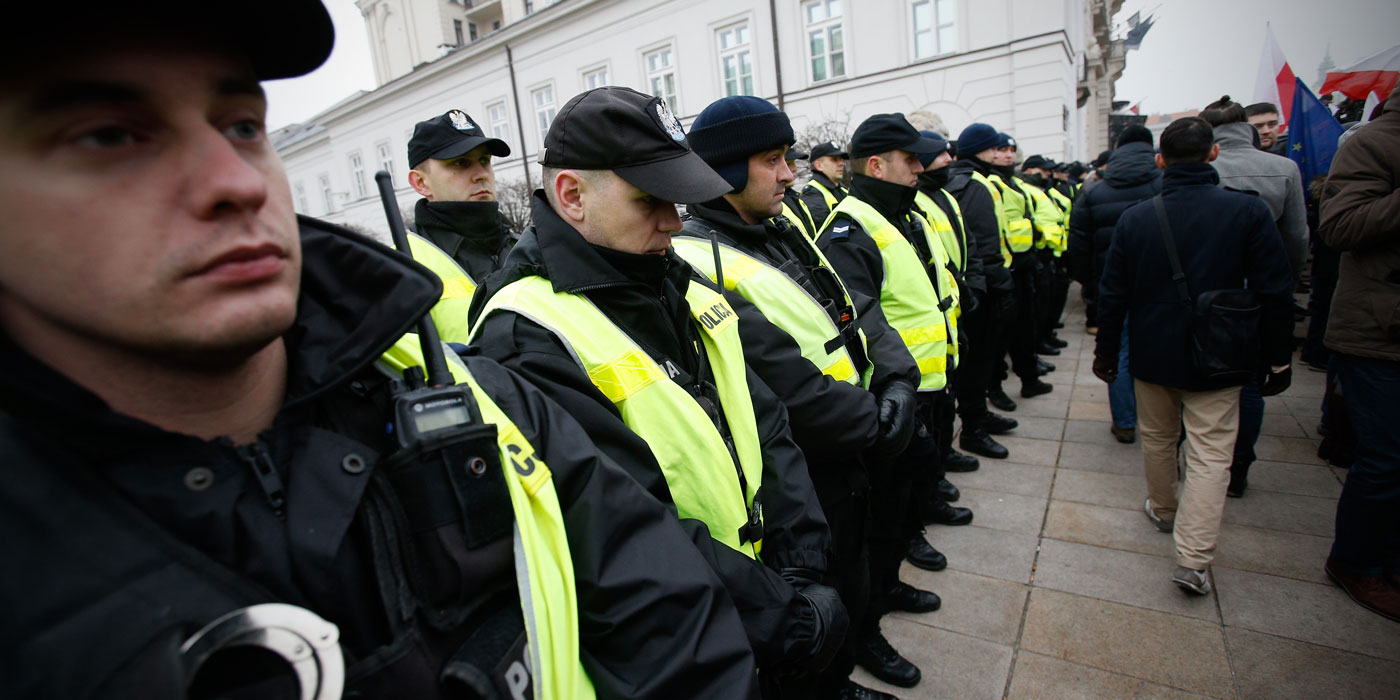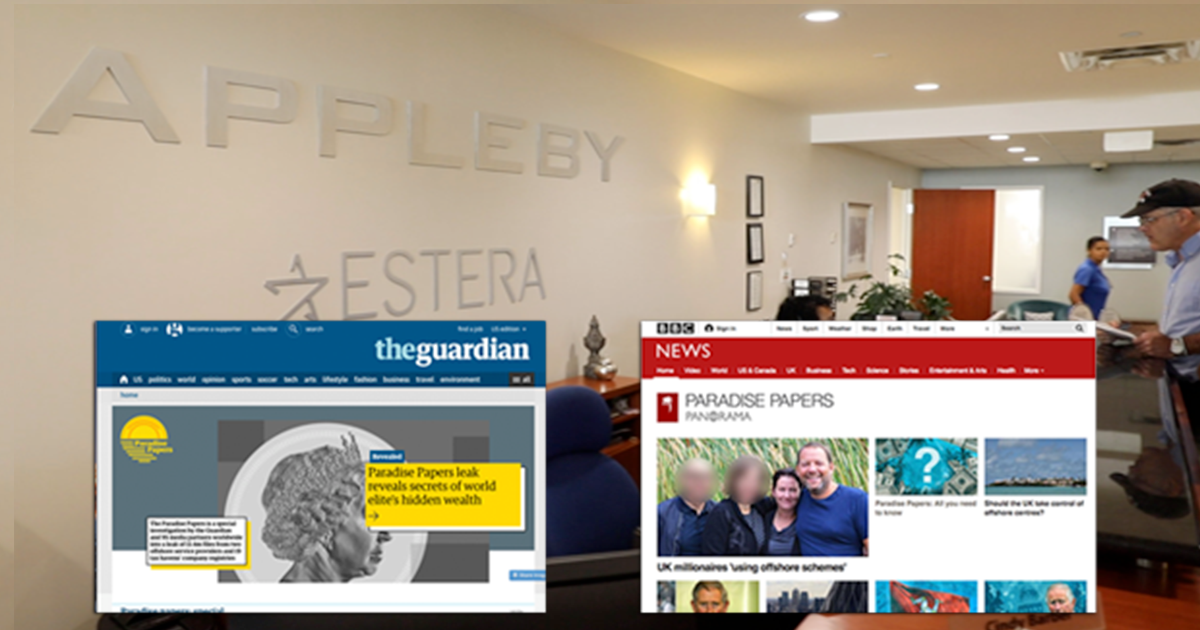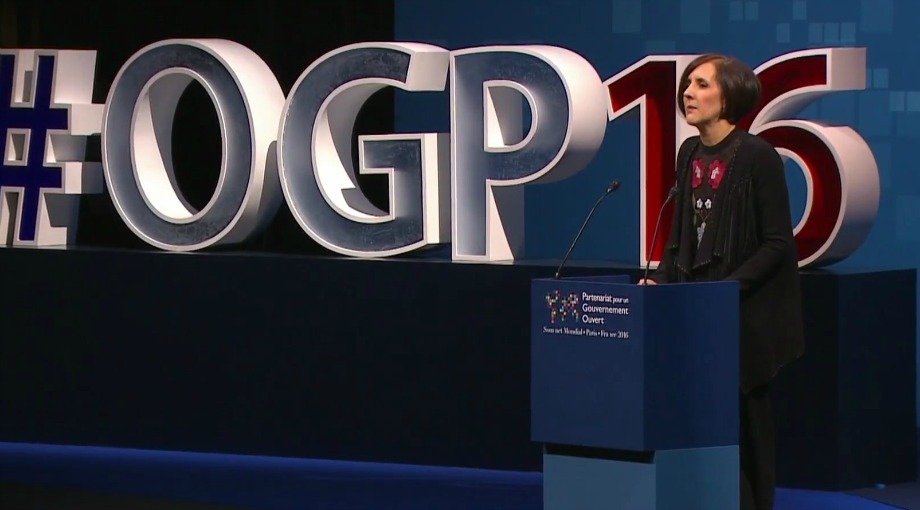ICIJ collaborates with journalists all around the world to break stories such as the Paradise Papers, Panama Papers, Evicted and Abandoned, Fatal Extraction and more. This is the first article in a series that goes behind the scenes of the investigative reporting and explores some of the challenges faced by these journalists.
Media outlets across the world are struggling to break even as traditional sources of revenue fade away, but in some countries, such as Poland, it’s even tougher because of government attempts to control the media. Over the past two years the Polish government, led by the conservative Law and Justice party, has tightened its grip on the press.
“When it comes to the freedom of the press, it has worsened significantly,” said Vadim Makarenko, ICIJ partner at Gazeta Wyborcza. Poland lost 7 points this year on World Press Freedom Index, and is now ranked 54.

The government is playing a larger role in public news outlets and trying to destabilize independent print media outlets, such as Gazeta Wyborcza and others. Since taking control, the Law and Justice party has ordered all state owned enterprises to cancel their advertising commitments and state agencies to cancel subscriptions. Copies of independent publications have become harder to find in news stands at service stations controlled by the state-run energy company.
ICIJ partners also assert accessing government officials has grown increasingly difficult.
“They refused to comment when our reporters call them,” said Makarenko.
“Directly, neither me or my colleagues are being affected by the government. Indirectly, the pressure is huge. When they undermine our revenue, that means more work, more revenue-focused work for editors.”
Normal debate has gone to a point where you can’t assess the government policy because there is too much noise around it from both sides.
With revenue decreasing sharply, – in 2016 Gazeta Wyborcza had to lay off 190 staff members – political pressure is worsening an environment where investigative journalism is already discouraged due to perceived high costs and low returns.
“We are more responsible for revenues than ever before today. All of our projects are revenue-focused,” explained Makarenko. “We have to focus on grants, looking for investors.”
The ruling party also has discouraged foreign investment in journalism in Poland. In addition, the polarized media scene has created an environment where investigative fact-based journalism is hard to ascertain.
“Normal debate has gone to a point where you can’t assess the government policy because there is too much noise around it from both sides,” said Makarenko.
“It’s increasingly difficult to get to the facts. Almost nobody is doing it. To be in the media today it’s like being in a club….The line between emotion and information is blurred.”
Government control is particularly reinforced for publicly owned media outlets. A media law passed in 2015 gave the government control over public broadcasting. “The government is micro-managing public media,” explains Makarenko.
Privately owned media are not spared. Last month, Poland’s media regulator fined a commercial TV station, TVN24, for covering protests at the national parliament. The official explanation for the fine was that, by broadcasting the protest, the TV station “promot[ed] illegal activities and encourag[ed] behaviour that threatens security.”
“This is the first time ever a Polish channel is fined for live broadcasting,” said Makarenko.“We see it as a crackdown on the media because you don’t control what happens when you broadcast live.”
A year ago, Reporters Without Borders issued a call to the EU to impose sanctions on Poland in response to repeated violations of media freedom.
“Ultimately, they are trying to restrict the flow of critical opinions or information by locking down the very institutions democratic countries put in place to act as checks and balances on the government and to protect the people,” explained Lydia Gall, Human Rights Watch’s European researcher in an interview last October.
“If it keeps going this way, we could have a situation where the government is in full control, where no critical voices would be allowed. That is the worst-case scenario for Poland’s future.”



